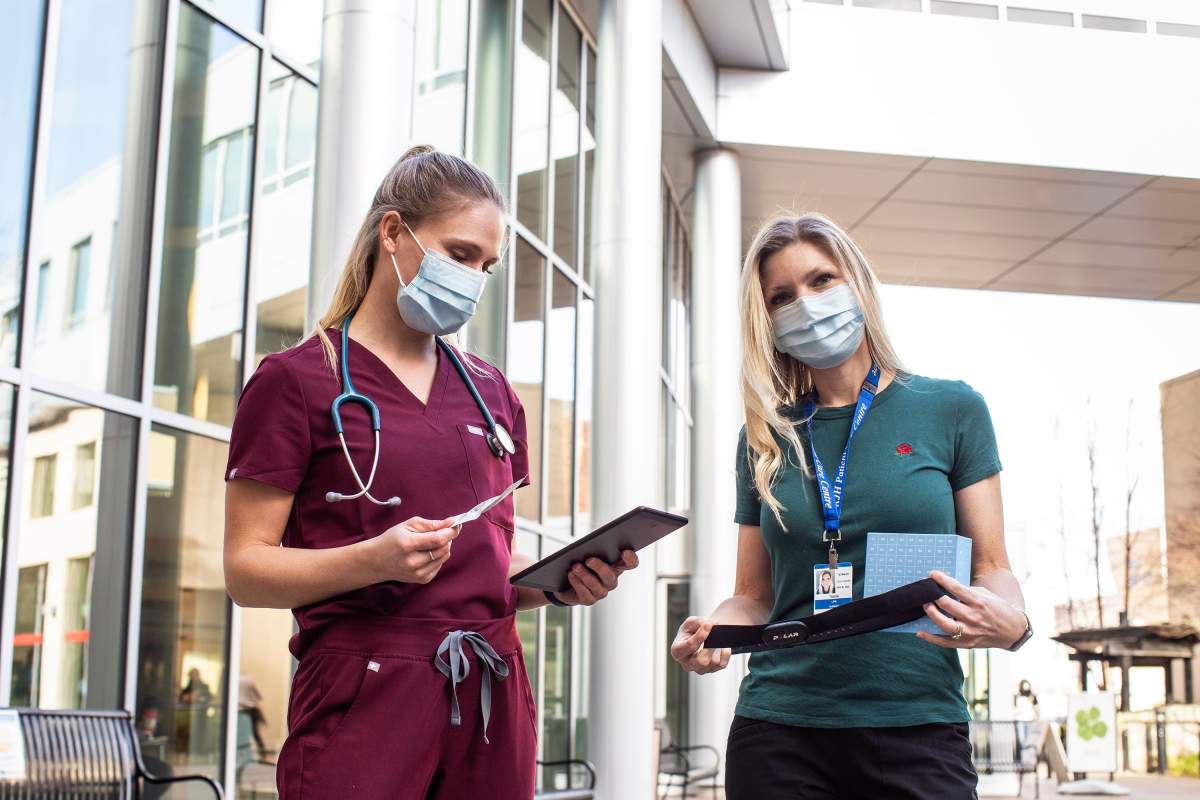New research out of the University of Victoria shows hospital nurses are living in a chronic state of stress.

The study, led by University of Victoria graduate student Marisa Harrington and supervisor Lynneth Stuart-Hill, looked at whether people providing health care during the COVID-19 pandemic are staying healthy themselves.
Early results showed participants’ stress responses were significant and similar, regardless of what department or hospital they were working in.
“Not only are they feeling mentally stressed, but they’re also feeling stress and exhibiting what we would call the stress response in the body as well,” said Harrington, a WorkSafeBC trainee.
The 10 nurses who have participated to date wore a watch-sized monitor over an eight-day shift rotation. Researchers monitored their sleep patterns, heart rate and heart variability.
“We’re still analyzing, but we are seeing significant data already around sleep in particular,” said Harrington.
“These nurses are spending more time in light sleep and less in REM sleep as well as having less sleep overall.”

The cardiovascular data also showed some major effects.

Get weekly health news
“What we’re seeing is on days off is that our nurses are still exhibiting a heightened stress in the cardiovascular system,” Harrington said.
“What that means is that they have a lowered heart rate variability, meaning they are in an enhanced chronic stress state,” she added.
“I knew that my heart rate was always high on my shift, from beginning to end,” said Tasha Vollo-Crawford, a study participant and nurse at Royal Jubilee Hospital.
“I see now that I’m in a constant state of stress at work.”
The study is also analyzing nurses’ saliva for three markers associated with stress, sleep and inflammation: cortisol, melatonin and interleukin-6.
“We know that this is a population that feels stressed psychologically. Now, we are establishing that there’s a measurable physiological impact as well,” Harrington said.
The study is part of broader research into the stress responses of shift workers being conducted by Stuart-Hill.
Phase two of Harrington’s study is now underway with a new round of subjects.
“I just hope that we’re able to shed a light on the incredibly vital work that these healthcare workers are doing,” Harrington said.
“To show how their health is impacted in working through all of this.”
The study is expected to conclude this spring.









Comments
Want to discuss? Please read our Commenting Policy first.